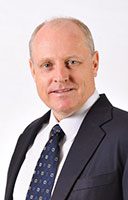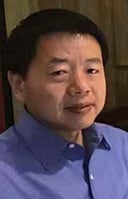Fitness for Service and Engineering Critical Assessment of pipelines and structures
FFS/ECA course based on the latest DNV code revisions and software development
About this course
This course focuses on the practical application of FFS and ECA particularly for pipelines and structures. While BS7910 and API579 are essentially stress based codes, the course covers strain-based analyses of pipelines with girth weld flaws and provides an overview of different methods and software tools for analyzing the tensile strain capacity of pipelines subject to high strain. The course includes a brief introduction of finite element analysis (FEA) to determine the stress and strain input to the analysis and covers advanced flaw modelling and J-integral analysis to derive the crack driving force.
The course will cover the theoretical background for elastic and elastic-plastic fracture mechanics and the fracture assessment diagram (FAD) methods, fatigue crack growth and tearing analysis. The course will also provide insight into the practical aspects of elastic-plastic fracture toughness (CTOD, J-integral) testing of weldings and the requirements to non- destructive testing for flaw sizing and development of alternative flaw acceptance criteria for pipeline installation. The first three days (Days 1-3) of the course cover applications involving high strain due to lateral buckling, reeling installation and high temperatures in clad pipelines as well as the effect of fatigue loading due to vortex induced vibration (VIV) associated with free spans. The fourth day (Day 4) of the course, which is optional, covers an introduction of finite element modelling, definition of boundary conditions and material models and finite element-based fracture mechanics analysis to generate stress/strain input to general design and ECA/FFS assessments.
Learning objectives
You will gain confidence in performing Option 1 and 2 analyses according to BS 7910: 2019 and will also be introduced to Option 3, which uses numerical analysis to generate a FAD and ductile tearing assessments. You will also become familiar with strain-based analyses based on DNV-RP-F108: 2019 and alternative methods.
Target group
The course is aimed at welding, inspection, structural, mechanical, construction, design and maintenance engineers who require more knowledge of the application of FFS assessment methods for structures, piping/pipelines and pressure vessels.
About the trainers
 |
Dr. Jens P. Tronskar M.Sc., PhD, CEng, IWE, FWeldI, FSWS Senior Vice President & Chief Technology Officer Materials and Testing |
| Dr. Jens P. Tronskar M.Sc., PhD, CEng, IWE, FWeldI, FSWS obtained his M.Sc. degree in Materials’ Physics and Physical Metallurgy from the Technical University of Norway (NTH) in 1980 and was conferred Doctor of Philosophy (PhD) in Applied Fracture Mechanics by the National University (NUS) of Singapore in 2002. Dr. Tronskar is a certified International Welding Engineer (IWE), and a UK‐Engineering Council Charted Engineer (C.Eng.). He was elected Fellow of Singapore Welding Society (FSWS) in 2015 and Fellow of The Welding Institute in Cambridge, UK in 2018. Presently he is Chief Technology Officer for DNV’s Energy Systems in Singapore. He has more than 40 years of experience of materials technology research, failure investigations and deterministic/ probabilistic fracture mechanics analyses/Fitness‐For‐Service analyses of structural, piping/process components and pipelines for the offshore and onshore oil & gas industry. Dr. Tronskar has been involved in materials evaluation and testing for many North Sea field development projects since the early 80s and has presented papers at international conferences in Europe, America, South America, Australia, Asia and North Africa. He has published more than 75 journal articles and peer reviewed conference papers on materials technology, welding and deterministic and probabilistic fracture mechanics analyses. |
|
 |
Dr Yang, Zhengmao Principal Engineer Materials Advisory |
|
Dr. Yang, Zhengmao, PhD, received his Doctor of Philosophy (PhD) degree in structural Engineering from the School of Civil and Environment Engineering (CEE), Nanyang Technological University (NTU) in 2005. Prior to his PhD degree, he received Bachelor (B.E.) degree in engineering mechanics from Tong Ji university in 1991, and Master (M.E.) degree in structural engineering from Huazhong university of science and technology in 2002. |
|
About this course
This course focuses on the practical application of FFS and ECA particularly for pipelines and structures. While BS7910 and API579 are essentially stress based codes, the course covers strain-based analyses of pipelines with girth weld flaws and provides an overview of different methods and software tools for analyzing the tensile strain capacity of pipelines subject to high strain. The course includes a brief introduction of finite element analysis (FEA) to determine the stress and strain input to the analysis and covers advanced flaw modelling and J-integral analysis to derive the crack driving force.
The course will cover the theoretical background for elastic and elastic-plastic fracture mechanics and the fracture assessment diagram (FAD) methods, fatigue crack growth and tearing analysis. The course will also provide insight into the practical aspects of elastic-plastic fracture toughness (CTOD, J-integral) testing of weldings and the requirements to non- destructive testing for flaw sizing and development of alternative flaw acceptance criteria for pipeline installation. The first three days (Days 1-3) of the course cover applications involving high strain due to lateral buckling, reeling installation and high temperatures in clad pipelines as well as the effect of fatigue loading due to vortex induced vibration (VIV) associated with free spans. The fourth day (Day 4) of the course, which is optional, covers an introduction of finite element modelling, definition of boundary conditions and material models and finite element-based fracture mechanics analysis to generate stress/strain input to general design and ECA/FFS assessments.
Learning objectives
You will gain confidence in performing Option 1 and 2 analyses according to BS 7910: 2019 and will also be introduced to Option 3, which uses numerical analysis to generate a FAD and ductile tearing assessments. You will also become familiar with strain-based analyses based on DNV-RP-F108: 2019 and alternative methods.
Target group
The course is aimed at welding, inspection, structural, mechanical, construction, design and maintenance engineers who require more knowledge of the application of FFS assessment methods for structures, piping/pipelines and pressure vessels.
About the trainers
 |
Dr. Jens P. Tronskar M.Sc., PhD, CEng, IWE, FWeldI, FSWS Senior Vice President & Chief Technology Officer Materials and Testing |
| Dr. Jens P. Tronskar M.Sc., PhD, CEng, IWE, FWeldI, FSWS obtained his M.Sc. degree in Materials’ Physics and Physical Metallurgy from the Technical University of Norway (NTH) in 1980 and was conferred Doctor of Philosophy (PhD) in Applied Fracture Mechanics by the National University (NUS) of Singapore in 2002. Dr. Tronskar is a certified International Welding Engineer (IWE), and a UK‐Engineering Council Charted Engineer (C.Eng.). He was elected Fellow of Singapore Welding Society (FSWS) in 2015 and Fellow of The Welding Institute in Cambridge, UK in 2018. Presently he is Chief Technology Officer for DNV’s Energy Systems in Singapore. He has more than 40 years of experience of materials technology research, failure investigations and deterministic/ probabilistic fracture mechanics analyses/Fitness‐For‐Service analyses of structural, piping/process components and pipelines for the offshore and onshore oil & gas industry. Dr. Tronskar has been involved in materials evaluation and testing for many North Sea field development projects since the early 80s and has presented papers at international conferences in Europe, America, South America, Australia, Asia and North Africa. He has published more than 75 journal articles and peer reviewed conference papers on materials technology, welding and deterministic and probabilistic fracture mechanics analyses. |
|
 |
Dr Yang, Zhengmao Principal Engineer Materials Advisory |
|
Dr. Yang, Zhengmao, PhD, received his Doctor of Philosophy (PhD) degree in structural Engineering from the School of Civil and Environment Engineering (CEE), Nanyang Technological University (NTU) in 2005. Prior to his PhD degree, he received Bachelor (B.E.) degree in engineering mechanics from Tong Ji university in 1991, and Master (M.E.) degree in structural engineering from Huazhong university of science and technology in 2002. |
|
